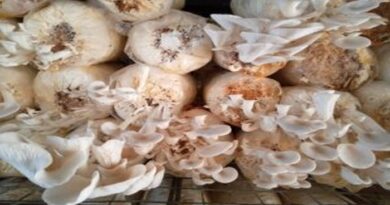Nigeria partners Olams to boost production of wheat with locally suitable seedlings
The Federal Government of Nigeria his partnering agri-business giant, Olams International Limited to boost the production of wheat in the country to develop seed varieties of the grain that are suitable for its climate, which will boost local output and reduce the country’s dependence on importation of the product.
This is coming at a time that the global food system has been in crisis due to the pressure from the Russia-Ukraine war.
According to Bloomberg, this was made known by the Country Head for Olam-Agric Nigeria, Ashish Pande, during a virtual media briefing where he said that Olam unit Crown Flour Mill has produced the nucleus seeds suitable for Nigeria’s topography and climate.
The Principal Research Officer at Lake Chad Research Institute, Kachalla Mala, had also at the event said that the new seeds give assurance that the investment of Olam will accelerate production in Nigeria, Africa’s largest buyer of wheat, across the wheat-farming belt.
It is on record that the Central Bank of Nigeria (CBN) has consistently been trying to boost wheat production locally in order to address the rising cost of the commodity through various support programmes to farmers in terms of funding, inputs, technical know-how, off-taking arrangements and others.
For instance in April 2021, the apex bank included wheat as one of the items listed in the Forex restriction list in order to encourage local production of the commodity and ultimately reduce the pressure on Nigeria’s foreign exchange market.
Also this year, it announced an increase in funding to stimulate local wheat production due to global increase in prices as well as the need to redirect the foreign exchange spent on importing the commodity.
Incidentally, Nigeria still imports most of its wheat for local consumption as the US Department of Agriculture had said that the country only produced 1 per cent of the 4.7 million tons of the commodity it consumed in 2021 as local wheat production has been negatively affected by lack of appropriate seed varieties that can be grown in local weather conditions, high fertilizer costs and the lack of irrigation facilities.




